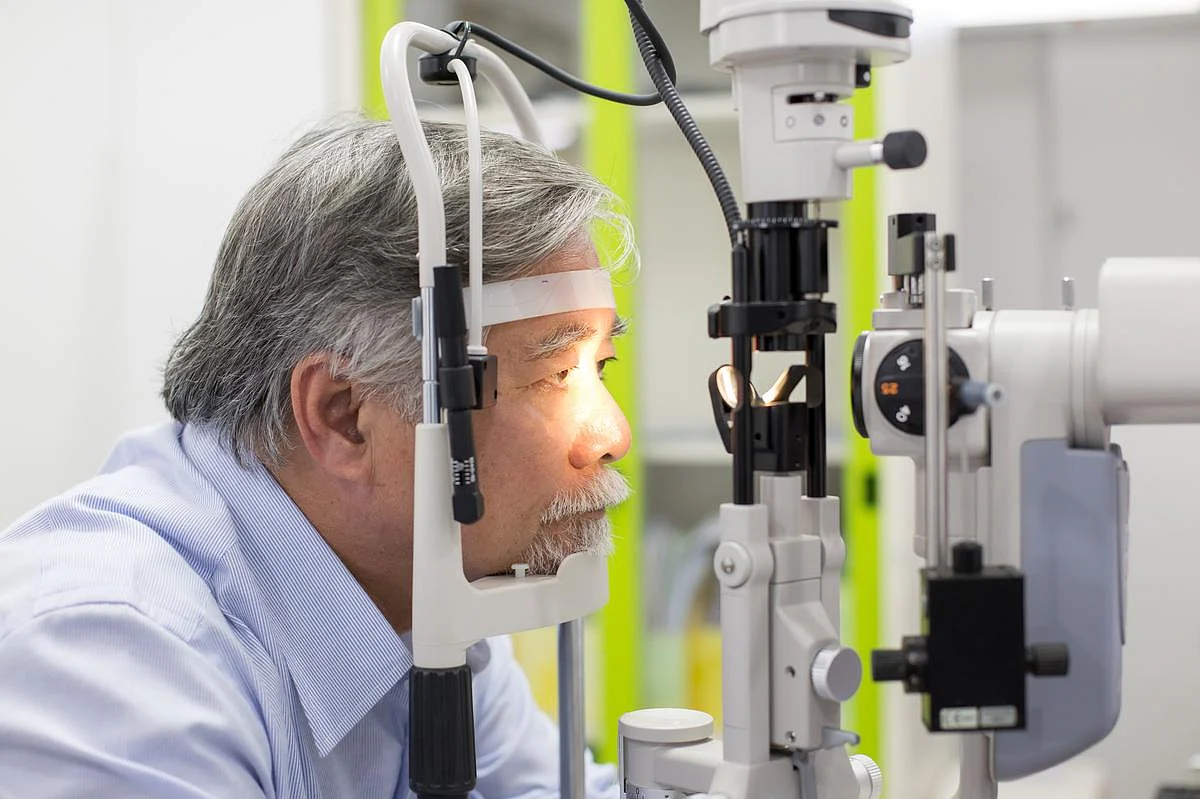AI Can Help Screen For Vision-Destroying Diabetic Eye Disease
By Dennis Thompson HealthDay Reporter
WEDNESDAY, July 16, 2025 — A new AI-powered retina tracker can help doctors screen for a vision-destroying diabetic eye disease, researchers say.
The Simple Mobile AI Retina Tracker (SMART) program achieved greater than 99% accuracy in screening for diabetic retinopathy, researchers reported Monday at the annual meeting of The Endocrine Society in San Francisco.
The program “uses cutting-edge deep learning algorithms to analyze retinal fundus images quickly and accurately, on internet-powered devices including basic smartphones,” researcher Jansi Rani Sethuraj of the University of Texas Health Sciences Center in Houston said in a news release.
“The SMART AI application enables ophthalmologists to streamline patient screening, empowers primary care providers to incorporate eye exams into routine visits, and expands access to high-quality retinal assessments in regions lacking specialized ophthalmic care,” Sethuraj added.
Diabetic retinopathy is a condition in which leaky blood vessels damage a patient’s retina, the light-sensing wall of tissue that lines the back of the eye.
It’s a leading cause of preventable blindness that affects more than 100 million people around the world, researchers said in background notes.
To create the program, researchers trained an artificial intelligence (AI) model on several thousand retinal images from a diverse group of patients spanning six continents.
Researchers then tested the AI on another set of images and found it could detect diabetic retinopathy nearly all the time, with a processing speed of less than one second per image.
The tracker also was able to distinguish diabetic retinopathy from other eye diseases, researchers added.
“By democratizing eye care through universally accessible mobile technology, this innovation has the potential to screen billions globally, reducing vision loss from diabetic retinopathy while transforming healthcare delivery systems,” researcher Dr. Elangovan Krishnan with AIM Doctor in Houston said in a news release.
“This research proves that AI can be a force for good, bridging gaps in care and bringing hope to millions at risk of losing their sight,” he added.
Findings presented at medical meetings should be considered preliminary until published in a peer-reviewed journal.
Sources
- The Endocrine Society, news release, July 14, 2025
Disclaimer: Statistical data in medical articles provide general trends and do not pertain to individuals. Individual factors can vary greatly. Always seek personalized medical advice for individual healthcare decisions.
© 2025 HealthDay. All rights reserved.
Posted July 2025
Read this next
Plant-Based Diet Protects Against Multiple Chronic Illnesses
FRIDAY, Aug. 29, 2025 — Shifting to a plant-based diet can help keep people from being plagued by multiple health problems as they age, a new study says. People whose diets...
New GLP-1 Pill, Orforglipron, Helps People Lose 23 Pounds in Study
WEDNESDAY, Aug. 27, 2025 — Eli Lilly says its new once-daily pill, orforglipron, helped people lose significant weight and lower blood sugar in a late-stage clinical...
Breath Test For Diabetes Under Development
WEDNESDAY, Aug. 27, 2025 — Detecting diabetes might soon be as easy as breathing into a device, a new study says. An experimental breath test sorted out type 2 diabetes...
More news resources
- FDA Medwatch Drug Alerts
- Daily MedNews
- News for Health Professionals
- New Drug Approvals
- New Drug Applications
- Drug Shortages
- Clinical Trial Results
- Generic Drug Approvals
Subscribe to our newsletter
Whatever your topic of interest, subscribe to our newsletters to get the best of Drugs.com in your inbox.

